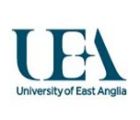Another term coined by Haack is Psychokulte (therapy cults), of which he distinguished two kinds: those with techniques which promise self-discovery or self-realization and establishments with therapies (Therapie-Institutionene)—Heelas's 'self-religions'. The followers of both types show the effects of Psychomutation, a distinct personality change (Haack, 1990a:191). Schneider (1995:189–190) lists organizations, such as Landmark Education, Verein zur Förderung der Psychologischen Menschenkenntnis (VPM), Scientology/Dianetics, Ontologische Einweihungsschule (Hannes Scholl), EAP and Die Bewegung (Silo) as examples of 'therapy cults'. These groups do not immediately suggest religion of Weltanschauung, but reveal ideological and religious elements on closer inspection. Their slogans are 'We have the saving principle' or 'We enable those who are able' and they offer Lebenshilfe (advice on how to live). Such advice is a commodity which is sold in very expensive seminars. The ideologies involved often lie in the grey areas between the humanities, psychotherapies, Lebenshilfe, 'mental hygiene' (Psychohygiene), and religion.
Arweck, Elisabeth (2004). Researching New Religious Movements: Responses and Redefinitions. Leiden: Brill. pp. 145-146. ISBN 0203642376.

